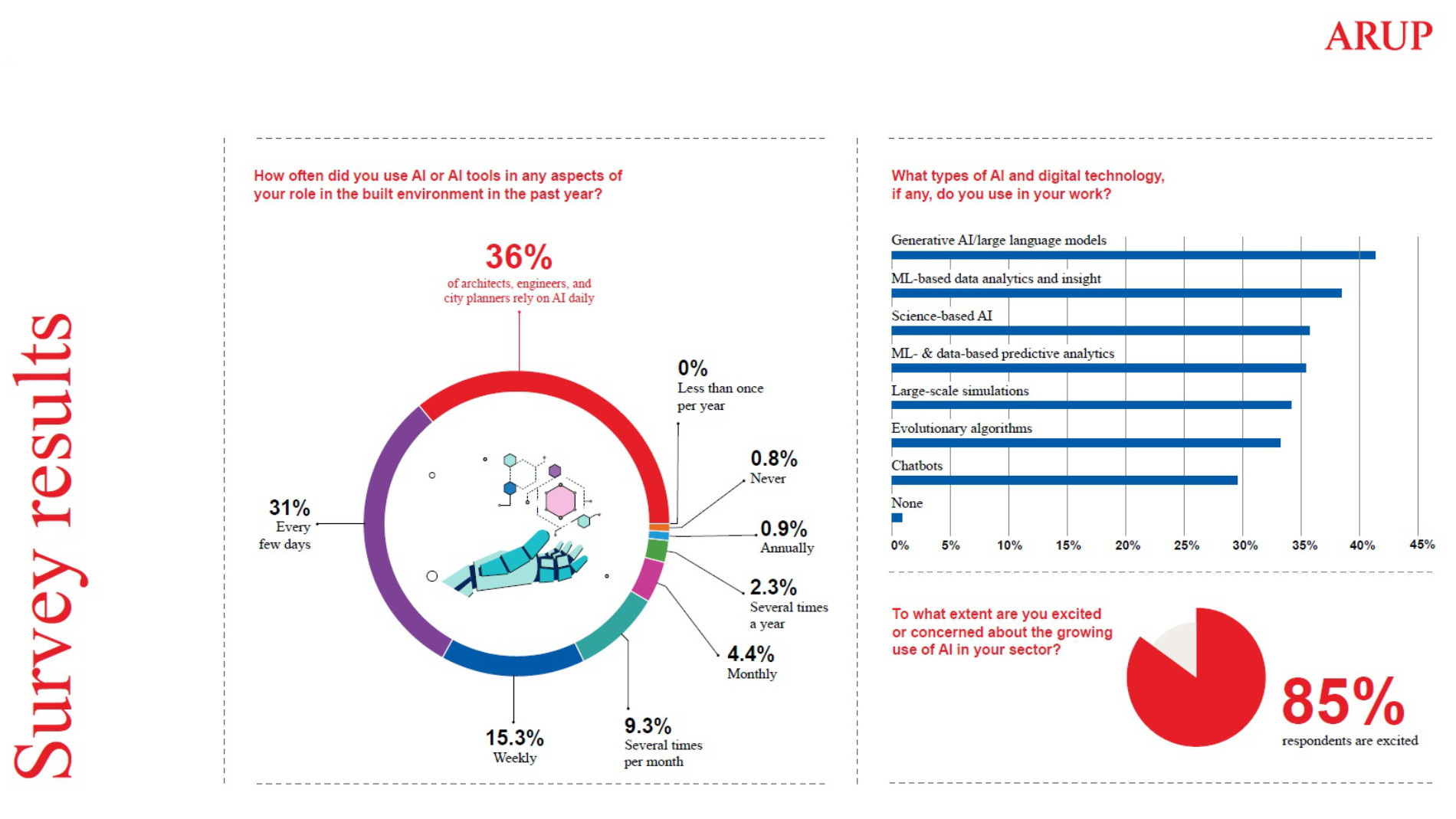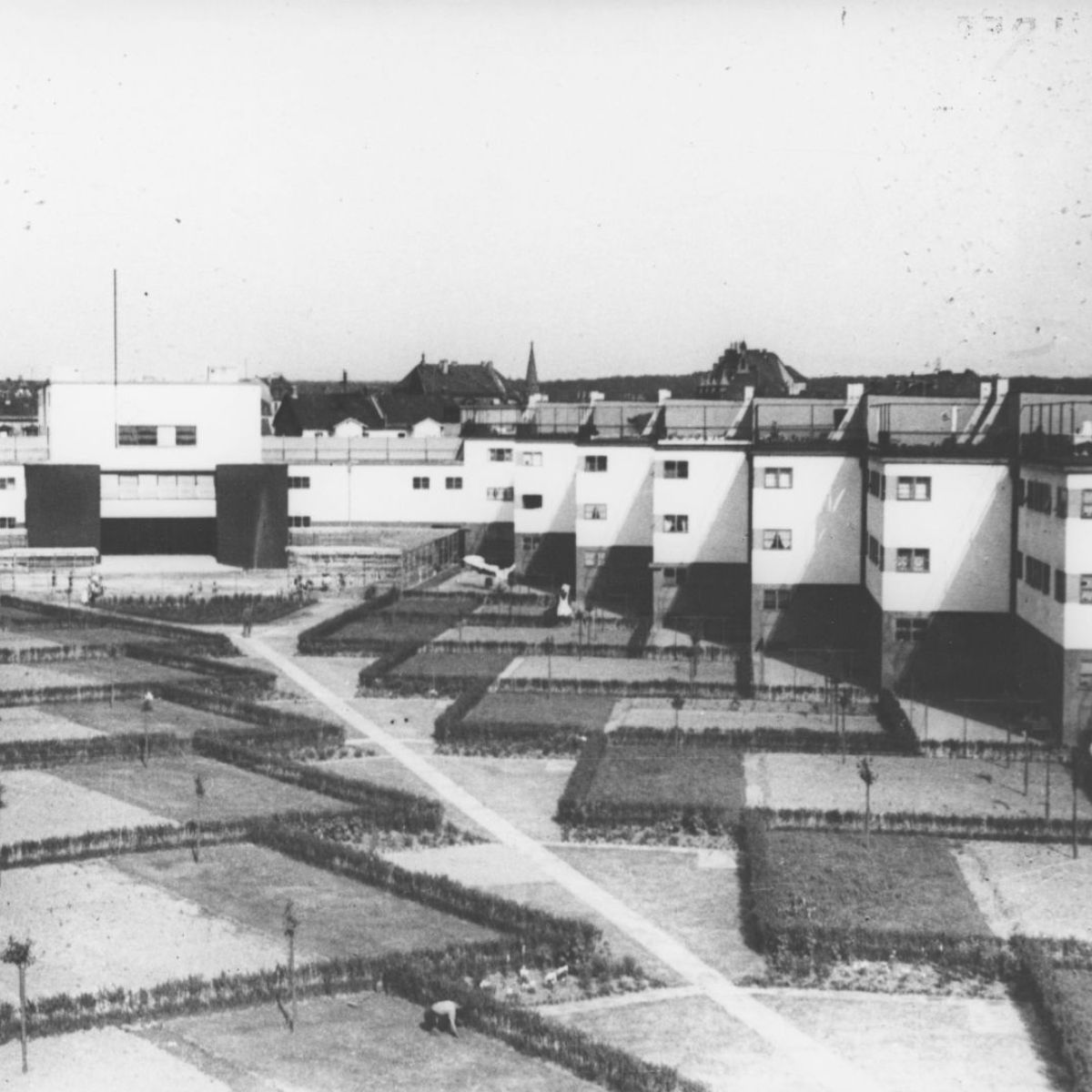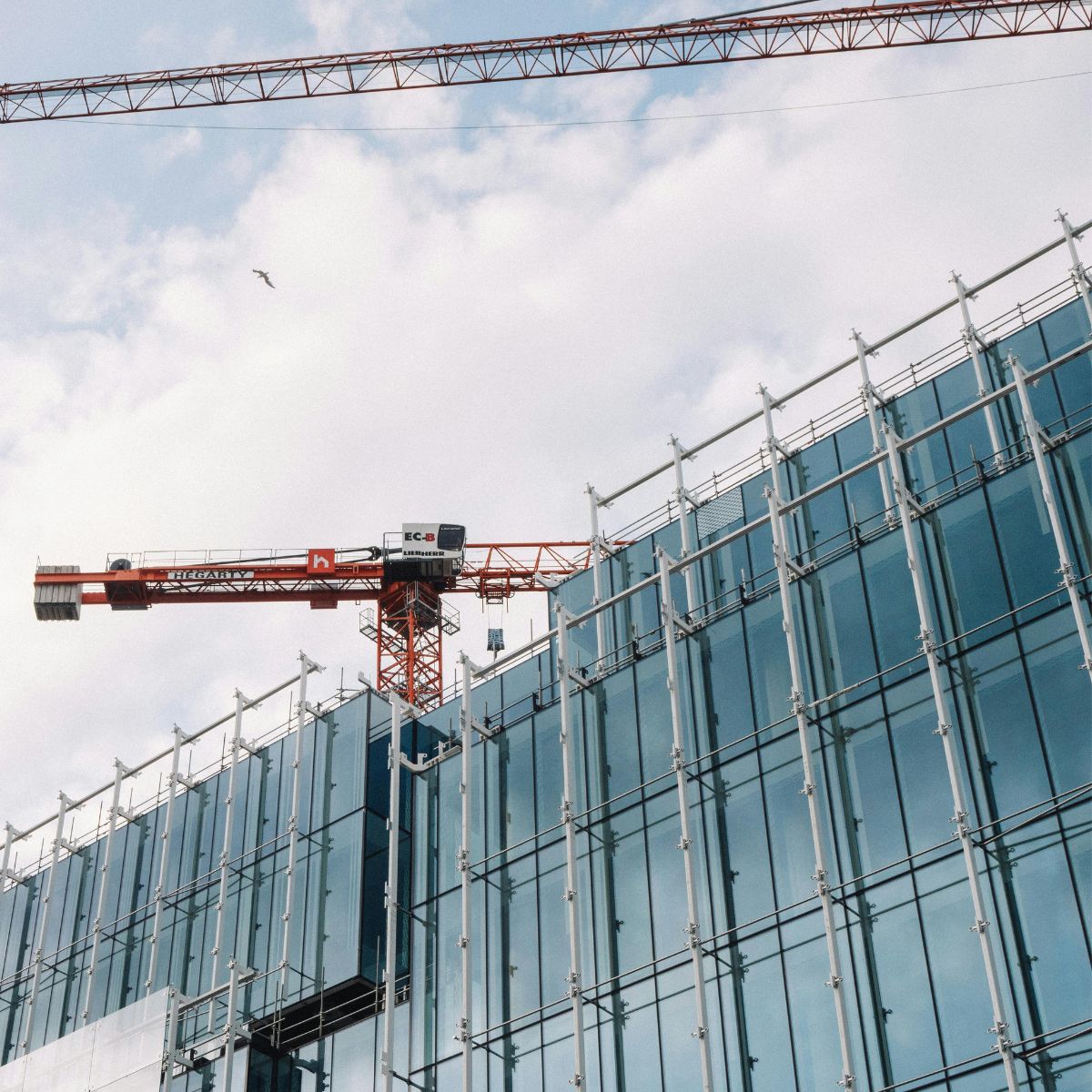Reading time: 3 minutes
Since the advent of ChatGPT, the use of artificial intelligence (AI) has expanded significantly. International interest in AI remains high, and the technology is increasingly gaining relevance in planning and construction. Numerous professionals are integrating AI tools into their daily work and consider this development to be significant for the industry. An international study commissioned by Arup examines which AI applications are considered most useful by architects and engineers.
The technology’s potential, according to the study, lies primarily in its ability to design cities, buildings, and infrastructure more efficiently and sustainably—particularly relevant for the building sector, which contributes significantly to CO2 emissions. The results show that planning firms are increasingly using AI, though Germany is less represented compared to other countries.
The Arup-commissioned study “Embracing AI: Reshaping Today’s Cities and Built Environment” analyzes the use and attitudes toward AI among professionals in architecture, engineering, and urban planning. A total of 5,000 experts from Australia, Brazil, China, Germany, Great Britain, India, Indonesia, Nigeria, Singapore, and the USA were surveyed.
High Daily Use of AI in Nigeria, USA and Brazil
Only 27% of German respondents reported using AI daily in their work—the lowest rate in an international comparison. Countries like Nigeria (46%), the USA (42%), and Brazil (41%) are leading in the daily integration of AI into planning and construction projects.
Despite the cautious adoption, interest is high: 81% of German professionals are generally open to AI and see potential for faster and more cost-effective project execution, as well as contributions to the decarbonization of the sector.
Data Quality, Ethics, and Industry Focus Slow Progress
The greatest obstacles to broader AI adoption in Germany are poor data quality (34%), ethical concerns and security deficiencies (34%), and the perception that AI applications are currently more focused on other industries (34%). Additionally, almost half of German respondents (44%) expressed concern about the strong market concentration among a small number of large, global tech corporations.
Project Delivery, Sustainability, and Talent as Growth Areas
The most frequently cited positive impacts of AI on the built environment play a central role in the construction sector: The greatest hopes lie in accelerating project delivery (25%), supporting budget compliance (25%), facilitating decision-making processes (26%), and enabling more creative work (26%).
When it comes to AI’s contributions to addressing climate and natural disasters, respondents highlighted: waste reduction (30%), development of sustainable materials (29%), urban planning and smart cities (29%), optimization of renewable energy, and sustainable building design (29%).
Furthermore, many professionals in the industry are already using some of the most advanced AI tools. According to the survey, this is particularly true for data analysis based on machine learning (38%), machine learning-based forecasting (35%), science-based AI (35%), and large-scale simulations (34%).
Arup commissioned the survey to show how AI is already transforming the planning of cities and infrastructure. The company calls for a stronger focus on developing AI tools that contribute to decarbonization and environmental remediation—while simultaneously providing resilient infrastructure for a growing global population. In 2024, $33 billion was invested worldwide in generative AI, out of a total of $252 billion in corporate investments. If only ten percent of these investments were directed toward developing AI tools to tackle the major challenges of the built environment, it could radically transform the sector and improve people’s lives, according to the study’s sponsors.

Clear Need for Faster and More Targeted Development of AI Systems
Jake Haskell, Head of Digital Services at Arup in Germany, summarizes: “AI can make a decisive contribution to meeting the major challenges in our industry—from climate protection and resource efficiency to the digitalization of planning. To unlock this potential, targeted development and application of AI technologies directly tailored to the needs of cities, people, and the environment is required.”












